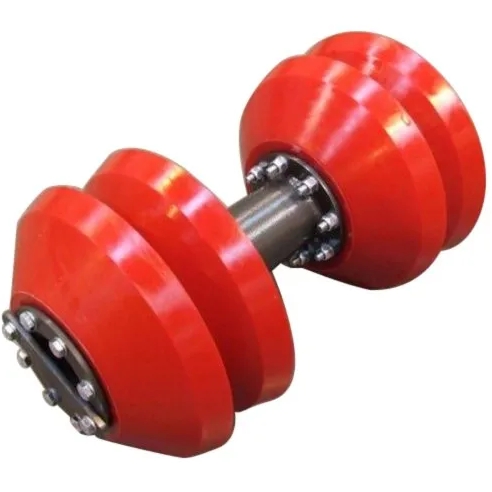PU Pipeline PIGS

Polyurethane (PU) pipeline pigs are devices used in the maintenance and cleaning of pipelines. They are called "pigs" due to the squealing sound they sometimes make as they move through the pipe. These pigs are usually cylindrical or spherical in shape and are inserted into the pipeline to perform various functions such as cleaning, inspection, and separating different products in the line.
Polyurethane is the material of choice for many pipeline pigs due to its versatility, durability, and resistance to abrasion. PU pipeline pigs are commonly used in the oil and gas industry, water pipelines, and various industrial processes where long pipelines require regular maintenance.
Functions of PU Pipeline Pigs:
1. Cleaning: One of the primary functions of PU pigs is to clean the inside of pipelines. They remove built-up debris, dirt, wax, or other substances that can accumulate during the transportation of products such as oil, gas, or chemicals. The pig scrapes the inner walls of the pipeline to ensure smooth and efficient flow.
2. Separation: PU pigs are often used to separate different batches of products being transported through the same pipeline. For example, in multi-product pipelines, the pig can separate oil from water or gas from liquid products, preventing contamination between different substances.
3. Inspection: Some PU pigs are equipped with sensors and data logging equipment to inspect the pipeline for corrosion, leaks, or damage. These "smart pigs" gather data as they move through the pipeline, providing crucial information for pipeline maintenance and safety.
4. Pipeline Testing: Pigs are used to ensure that the pipeline is properly sealed and has no leaks. This is often done during pipeline commissioning, before it is put into service, or after maintenance to verify the integrity of the line.
5. Debris Removal: In older pipelines or those carrying products that tend to leave residue, PU pigs are used to remove debris and reduce the risk of blockages or inefficiencies.
6. Maintenance and Longevity: Regular pigging ensures that the pipeline remains clean and free from build-up, extending the lifespan of the pipeline and reducing the need for costly repairs or replacements.
Applications:
· Oil and Gas Industry: PU pipeline pigs are used extensively in crude oil, natural gas, and petrochemical pipelines to ensure the continuous flow of products and prevent blockages.
· Water Pipelines: They help remove sediment and biofilm buildup in water transportation pipelines, improving water quality and flow.
· Chemical Processing: In chemical plants, pigs are used to clean pipes between different processes, ensuring no cross-contamination occurs between chemical batches.
· Food and Beverage Industry: PU pigs are also used in food-grade pipelines to clean between batches of different products, maintaining hygiene and preventing contamination.
In summary, PU pipeline pigs are critical tools in pipeline maintenance, providing functions such as cleaning, separation, inspection, and testing, while ensuring the pipeline operates efficiently and safely over time.
